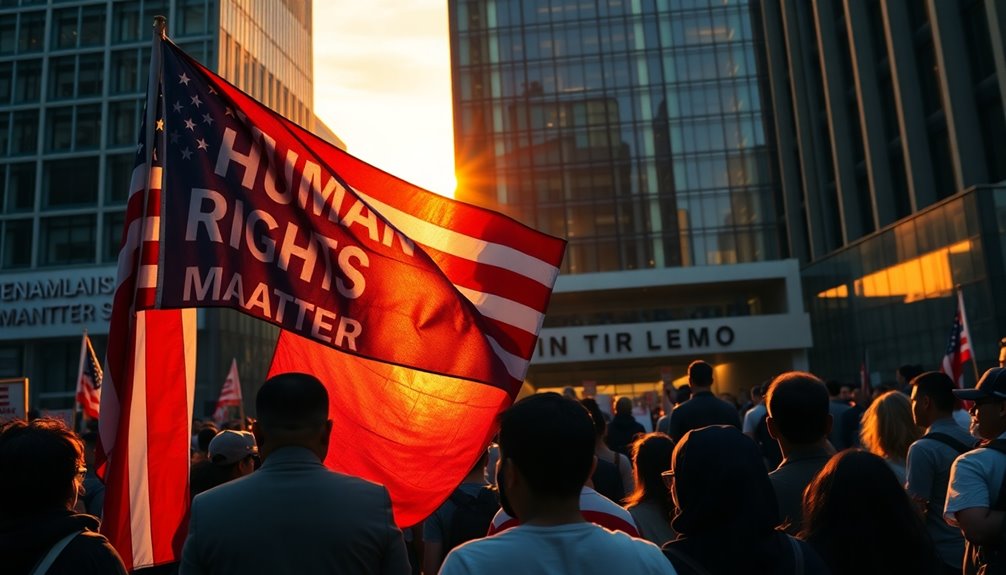
As tensions rise in Southeast Asia, the U.S. has taken decisive action against Thailand for its recent deportation of Uyghurs to China, imposing visa restrictions on Thai officials involved in the controversial move. This marks a significant shift in the U.S.-Thailand relationship, a long-standing alliance now strained by human rights concerns. The U.S. aims to combat China's increasing pressure on governments to forcibly return Uyghurs, highlighting its commitment to human rights.
In defending its actions, Thailand has labeled the deportations as the "best solution" to avoid backlash from China, seeking to deepen its economic ties with the rising superpower. While Thailand claims it received assurances from China regarding the treatment of the deported Uyghurs, international voices are loud in condemning the actions as violations of human rights laws. Countries like the U.S. and various human rights organizations have voiced their concerns, arguing that the deported individuals face significant risks of persecution, torture, and even enforced disappearances upon their return to China.
The U.S. response, which includes visa restrictions aimed at Thai officials, reflects a broader strategy of using human rights as a diplomatic tool against China's influence in the region. This incident underscores the complex geopolitical dynamics at play, where economic interests often clash with ethical considerations. The U.S. is clearly signaling that it won't tolerate complicity in human rights abuses, even from allies.
The U.S. reinforces its stance on human rights, using diplomatic measures to counter China's influence in the region.
On the other hand, Thailand's actions reveal its fear of economic repercussions should it choose to resettle the Uyghurs elsewhere. With offers from the U.S. and other nations on the table, Thailand opted for a path that prioritizes economic stability and relations with China over humanitarian considerations. This choice has drawn international outcry, including criticism from the European Parliament and the UN.
In the grander scheme, this situation highlights the precarious balance Southeast Asian nations must navigate amid growing U.S.-China tensions. As Thailand aligns itself more closely with China, it risks alienating a crucial ally in the U.S., which may have lasting implications for regional dynamics.
The geopolitical fallout from the Uyghur deportations is far-reaching, illustrating the intricate interplay between human rights diplomacy and economic interests in a rapidly evolving world.









